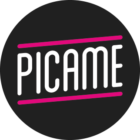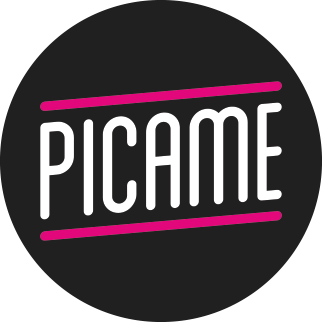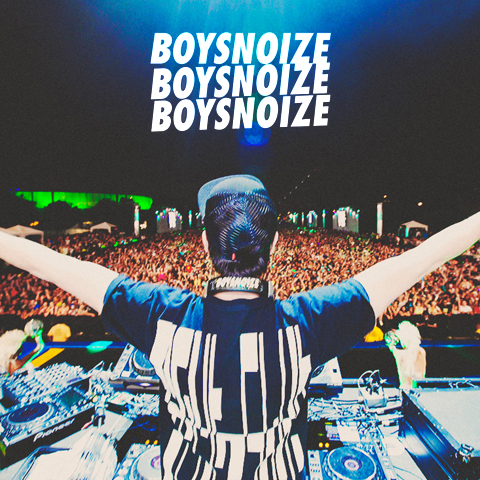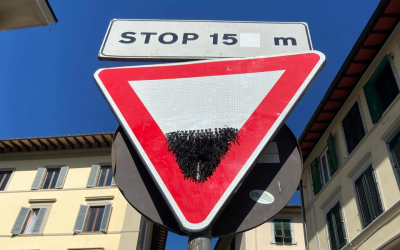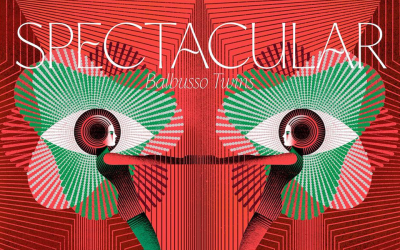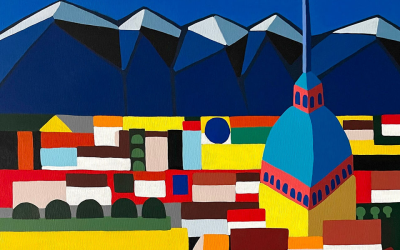Alex Ridha, classe 1982, Amburgo. Un passato da graffitaro, un presente da dj, label manager, produttore. Un paio di anni fa abbiamo assistito ad uno dei suoi dj set a Berlino, era il 2009, da allora i party quasi ci annoiano, i dj set ci lasciano una punta di insoddisfazione. In occasione del tour che lo vedrà in Italia i primi di Giugno (mercoledì 1 ai Magazzini Generali di Milano, giovedì 2 a Venezia) lo abbiamo intervistato, per chiedergli come si diventa uno degli artisti più apprezzati della scena elettronica internazione, e un po’ di altre cose. Cosa c’entra con Pìcame voi penserete? Forse nulla, forse tutto. Ma se qui si parla di creatività non vi resta che leggere ed ascoltare. Pìcame meets Boys Noize.
Alex Ridha, born in 1982, Hamburg. A past as a graffiti artist, a present as a DJ, label manager, producer. A couple of years ago we went to hear one of his dj set in Berlin, it was the 2009, since then the parties almost bored us, the dj sets leaves us a bit of dissatisfaction. In occasion of his italian tour (wednesday 1 June in Milan, thursday 2 in Venice) we interviewed him to ask him how to become one of the most esteemed artist of the international electronic music scene, and some other things. Probably you are thinking what to do it with Pìcame? Maybe nothing, maybe everything. But if we are talking about creativity, you just need to read and hear. Pìcame meets Boys Noize (Full translations at the end of the post).

Ciao Alex, Benvenuto su Pìcame. Dove ti trovi?
In un aereo a Lisbona, aspettando la partenza per Amsterdam. Ci sono problemi con il volo.
Sei nato e cresciuto ad Amburgo. Ora abiti a Berlino. Qual’è il tuo rapporto con questa città?
Sono arrivato a Berlino 8 anni inseguendo l’amore. Mi piace vivere a Berlino, le persone sono serene e c’è una bella vibrazione nell’aria.
Come è iniziata la tua carriera? Quali musicisti e dj ti hanno influenzato?
A 14 anni prima di diventare dj suonavo la batteria. Lo facevo per divertimento, e facevo due lavori per pagarmi i vinili che compravo e che usavo per i mixtape. All’epoca non ammiravo nessun dj in particolare. Suonavo in bar schifosi e feste scolastiche fin quando a 16 anni non ho avuto il mio primo ingaggio in un club privato. Ero un dj alle prime armi, suonavo deep house britannica e roba simile. Più tardi ho iniziato ad apprezzare molti djs come Dj Hell, Richie Hawtin, Westbam e 2manyDjs.
Perché il tuo primo album è intitolato Oi Oi Oi?
Descrive il mio atteggiamento di quel tempo. Volevo fare un album che iniziasse nella maniera più rumorosa possibile… ahah. A parte gli scherzi è stata una reazione alla musica che c’era nei club in quel periodo, si sentiva solo minimal e roba del genere e io volevo fare il contrario. Inoltre è una reazione verso tutti quegli artisti che producono musica dietro la spinta di etichette discografiche, denaro o manager merdosi, quindi alla fine posso dire “Fanculo, non mi preoccupo se quello che faccio ti piace o no!”
Il tuo suono tra il primo ed il secondo album (Power) si è decisamente evoluto, ed anche nelle tue esibizioni live sembri puntare su pezzi più acidi ed elaborati tralasciando spesso alcuni dei tuoi “classici” di sicura presa sul pubblico. Da cosa nasce questo cambiamento?
Beh, è qualcosa di naturale. Da quando faccio il dj non ho mai suonato la stessa musica per molto tempo, è una cosa che non funziona altrimenti non mi interesserebbe più suonare e produrre altro. Penso che i dj abbiano la responsabilità di mostrare qual’è il nuovo sound, il futuro. Questo è ciò che faccio quando produco, cercando sempre di sorprendere per primo me stesso con suoni nuovi.
Ti è capitato di produrre dei pezzi che tu ritenevi forti e che invece non sono stati recepiti al massimo dalla gente?
Sì certo, penso che “Transmission” sia incredibile e così anche “Trooper” ma entrambi non hanno riscontrato successo nel pubblico, il loro sound è molto personale. Credo che l’energia di questi brani sia qualcosa di pazzesco.
Alcuni dj secondo te sottovalutati per il loro potenziale?
Forse Housermeister.

Spesso fai collaborazioni con artisti della scena tedesca e francese, più raramente con artisti di altre nazioni (Italia compresa). C’è una particolare motivazione o è semplicemente pura casualità?
E’ che mi piace lavorare con persone che mi entusiasmino. Non voglio stare in studio e fare tutto da solo circondato da persone sedute attorno a me. C’è bisogno di sinergia, di creare qualcosa insieme. Non mi importa da dove provengano gli artisti o i produttori, l’importante è che mi trasmettano entusiasmo.
Ti è mai sembrato che il pubblico che ti viene a sentire dal vivo non afferri realmente il senso della tua musica o abbia un approccio che tu non condividi? In tal senso hai riscontrato differenze tra il pubblico italiano e quello di altri paesi dove hai suonato?
Bella domanda, beh penso che il pubblico più giovane sia il più ineducato ma in ciò non c’è nulla di male, bisogna solo concedere loro un paio d’anni per ascoltare della buona musica elettronica. Questo rende il mio tour una sorta di missione, ogni volta che vedo ragazzi che non conoscono ancora i pezzi del 2005 o giù di lì glieli faccio sentire. Credo che negli Stati Uniti ci sia bisogno di ascoltare della buona musica perché ascoltano solo della merda… ahah. D’altra parte però c’è il Giappone, dove il pubblico conosce tutto, anche i crediti del disco.
Quand’è stato il tuo turning point, il momento in cui ti sei detto “Ce l’ho fatta!”?
Credo sia stato nel 2005 quando ho iniziato a produrre dischi per la mia etichetta e quando i Depeche Mode mi hanno chiesto di remixare “Personal Jesus”. Quello è stato un momento cruciale direi.
Quando eri adolescente realizzavi graffiti, parlaci di questa tua passione, si è evoluta in qualcosa di più concreto?
In città tutti gli autobus avevano una mia tag sopra ma non ho mai fatto il grande passo di realizzare graffiti. Ancora oggi non riesco a smettere di fare disegni perfino quando sono al telefono. Mi capita anche di pensare a nomi che non vogliono dire nulla e le cui lettere non hanno significato ma che stanno bene assieme e creano un bell’effetto visivo.
Il teschio che compare sulla cover di Oi Oi Oi è celebre, a dir poco. Curi personalmente la tua immagine e quella delle tue produzioni o lasci carta bianca a creativi e designer?
Me ne occupo molto a dire la verità e sono contento di collaborare con un designer (Paul Snowden) che è anche un’artista dotato di grande sensibilità e idee.

Una domanda cazzona te la dobbiamo pur fare… Da dove viene il nome Boys Noize?
Proprio non me lo ricordo, so solo che stavo cercando un nome che avesse un’affinità con la musica che producevo.
Mai pensato di indossare una maschera?
No, dopo che l’hanno fatto i Daft Punk credo non sia per nulla originale copiare una cosa già fatta da altri. Mi piacerebbe trovare una soluzione perché le foto che ho adesso di me… proprio non mi piacciono.
Finito il tour che ti vedrà coinvolto in Italia a Milano e Venezia rispettivamente l’1 e il 2 giugno 2011, quali sono i progetti di Boys Noize?
Sto lavorando al nuovo album! E al contempo mi sto occupando della produzione del nuovo album di Spank Rock di cui sono super entusiasta, oltre a collaborazioni con amici come Erol Alkan e Siriusmo.
Il rock, tanto per fare un esempio, nasce intorno agli anni ’50 divenendo strumento di comunicazione di massa per manifestare l’emergente malcontento sociale. Cosa rappresenta oggi la musica elettronica?
David Guetta ahahah. No diciamo che l’elettronica è diventata commerciale e adesso è nostro compito dimostrare alla gente che cosa è veramente di qualità e cosa non lo è. Quando ho iniziato a fare musica avevo sempre quell’atteggiamento del “fanculo faccio quello che voglio” e oggi molte persone vogliono essere punk senza sapere nemmeno che vendere non è uno scopo del punk. Il punk e l’elettronica hanno molto in comune sopratutto a livello di produzione di suoni interessati. Faccio elettronica perché ero stufo dei soliti strumenti ma molta musica elettronica usa dei pessimi suoni, solo roba presettata.
Tre cose che porti sempre con te durante i tuoi tour.
Aspirine, jeans neri e cartine.
Come sai Pìcame è un un magazine dedicato principalmente alle arti visive, illustrazione, grafica e fotografia in particolare. Conosci degli artisti che ti piacerebbe segnalarci?
Date un’occhiata a Paul Snowden! È un punk come non ce ne sono più in giro, direttamente dalla Nuova Zelanda e non se la cava per niente male.
Special thanks to: Fabio Perugini, Giorgio Podenzani, Emanuela Culiersi, Michela Bado.
————
Hi Alex, welcome on Pìcame. Where are you?
In the airplane in Lisbon, waiting to fly to Amsterdam. Flight problems.
You were born and grow up in Hamburg. Now you live in Berlin. What’s your relation with this city?
I moved to berlin 8 years ago because of my love if found there. I love living in Berlin, people are relaxed and it’s a good vibe.
How started your career? There are some musicians and Djs who have influenced you?
I played drums before i started to dj at 14 years. I just did it for fun, I had 2 jobs to finance the vinyl records I was buying which I used for mixtapes only. At that time I didn’t have any djs I looked up to or so. I played some shitty bars and school gigs before I had my first gig in a proper house club when i was 16 years old. I was a warm up dj played US deep house and shit like that. Later I liked many djs like DJ Hell, Richie Hawtin, Westbam or 2manyDjs.
Why your first album is titled Oi Oi Oi?
It decribes the attitude I had at that time. I wanted to make an album that when you put it on it starts as loud as possible haha. No but seriously it was a reaction to the music that was in the clubs around that time, everything was minimal and stuff and i wanted to make the opposite. Also it’s a reaction to all the artists that get pushed by record labels with money or shitty managers, so in the end a big FUCK YOU I can do it myself and I don’t care if you like it or not!
Your sound between the first and the second album (Power) is definitely evolved, and also in your live performances you seem to point to more acic and elaborate tracks often ignoring some of your “classics” that surely capture your audience. Why this change?
Well, that is something natural. As a DJ I never play the same music for a long time, thats a no go, other wise I wouldn’t be excited to play and produce anymore. As a DJ I think you are responsible to show what is the next sound, the future. The same goes for my production, I always try to surprise myself with fresh sounds.
Did you happen to have tracks that you believed strong and, on contrary, they weren’t understand by the most of people? Or the opposite?
Yes of course, I think “Transmission” is incredible as well as “Trooper” but yeah both don’t have a popular sound but it s very own. The energy of those tracks is crazy I think.
Can you give us the names of some djs that in your opinion are understimate for their potential?
Housemeister maybe.
You often do collaborations with German and French artist, rarely with artist from other countries (including Italy). Is there a particular reason or is it just pure coincidence?
I only like to work with people that excite me as well. I don’t want to sit in the studio doing everything alone while the other person sits around. It needs to be a synergy, something you create together. I don’t care where the other artist or producers comes from, it just needs to excite me.
Have you ever felt that the audience coming hear your live doesn’t really grasp the meaning of your music or has an approach that you don’t share with it? In this sense have you found differences between the Italian public and the public of other countries where you played?
Good question, well i think the younger the audience the more uneducated they are which is nothing bad, just give them couple more years until they explore more good electronic music. This makes my touring to a mission whenever I feel the kids don’t even know tracks from 2005 or so, i give it to them. I feel that in the USA needs more good stuff because they only hear shit music haha. On the other hand there is Japan, where they know everything, even the credits of the record.
When was your turning point, when you have said “I made it”?
I think in 2005 when i released couple records on my own label and when Depeche Mode asked me to remix “Personal Jesus”. That was a big moment for sure.
When you were a teenage you realized graffiti, tell us about your passion, it has evolved in something more concrete?
I was the guy who’s tag was in every bus in the whole city hehe. I sprayed a bit too but i never made the big step towards big pictures/graffiti. Until today I can’t stop doing wierd tags/bombs everytime I’m on the phone or so. It also made me think of other names that mean nothing but the letters looking cool next to eachother.
The skull that appears on the cover of Oi Oi Oi is very famous. Do you take care personally of your image and your productions or leave creatives and designer free?
I do care about it a lot, though I’m happy to work with a designer (Paul Snowden) who is also an artist and who got strong ideas too.
We have to ask you also a stupid question… where come from the name Boys Noize?
I seriously can’t remember, I was looking for a name that fits to my music…
Do you ever thought of wearing a mask?
No, after Daft Punk using maskes I don’t think it’s really cool to do something similar… I wish I would sometimes because i don’t like those dj fotos of mine haha.
After the tour that will see you involved also in Italy (Milan and Venice, respectively 1 and 2 June 2011) what are the projects of Boys Noize?
I’m working on a new album! Also i just finished production on the new Spank Rock album which I’m really excited for. Then some collabs with my friends Erol Alkan, Siriusmo.
Rock, for example, was born in the ’50s and became a mass communication instrument in order to demonstrate the emerging social discontent. What represents electronic music today?
David Guetta haha. No but yeah electronic has become commercial and now it’s our mission to show the mainstream people the difference between good and bad stuff.
When I started making tracks I was always in the “fuck you I do what I want” attitude and nowadays a lot of people pretending to be punk but it’s not punk selling out… Techno has a lot in common with Punk because of this attitude, and electronic music is about interesting sounds. I’m doing electronic music because I’m bored with the usual instruments but most of the electronic influenced records use very shitty sounds, just preset sounds.
Three things that you carry always with you during your tour.
Asperin, black jeans & papers.
Pìcame, you know, is a magazine dedicated to visual arts, illustrations, graphic design and photography in particular. Do you know some artists that you’d like to recommend to us?
Check out Paul Snowden! He’s an old punk from New Zealand and he does good stuff.
